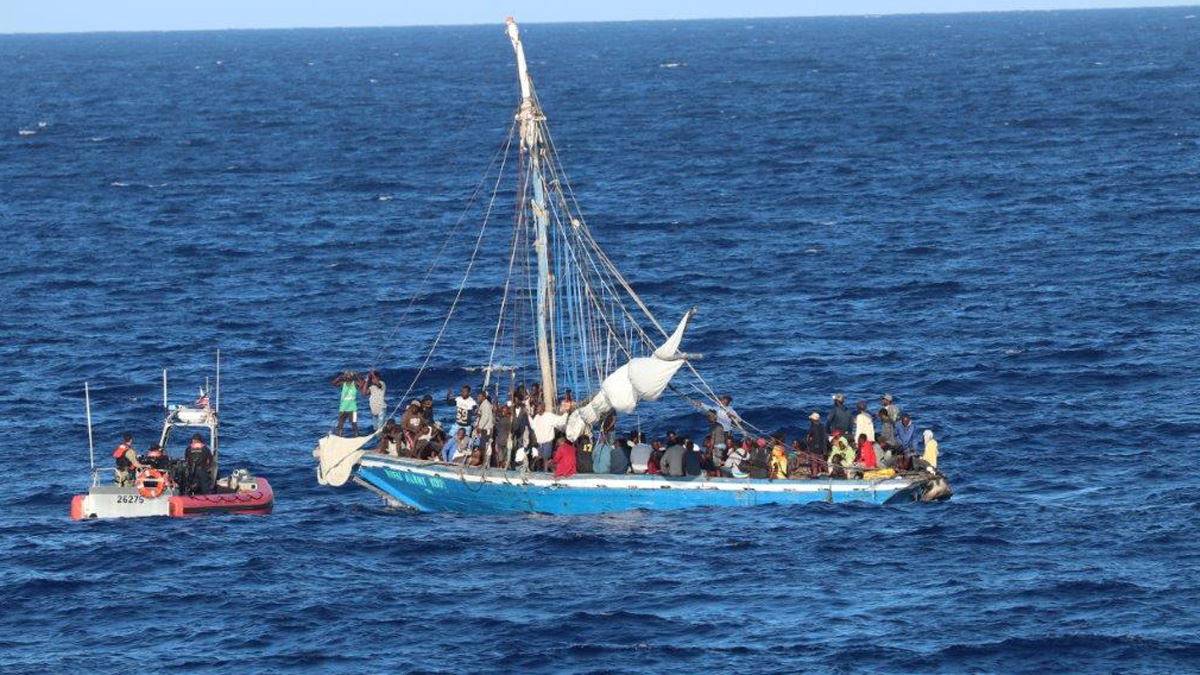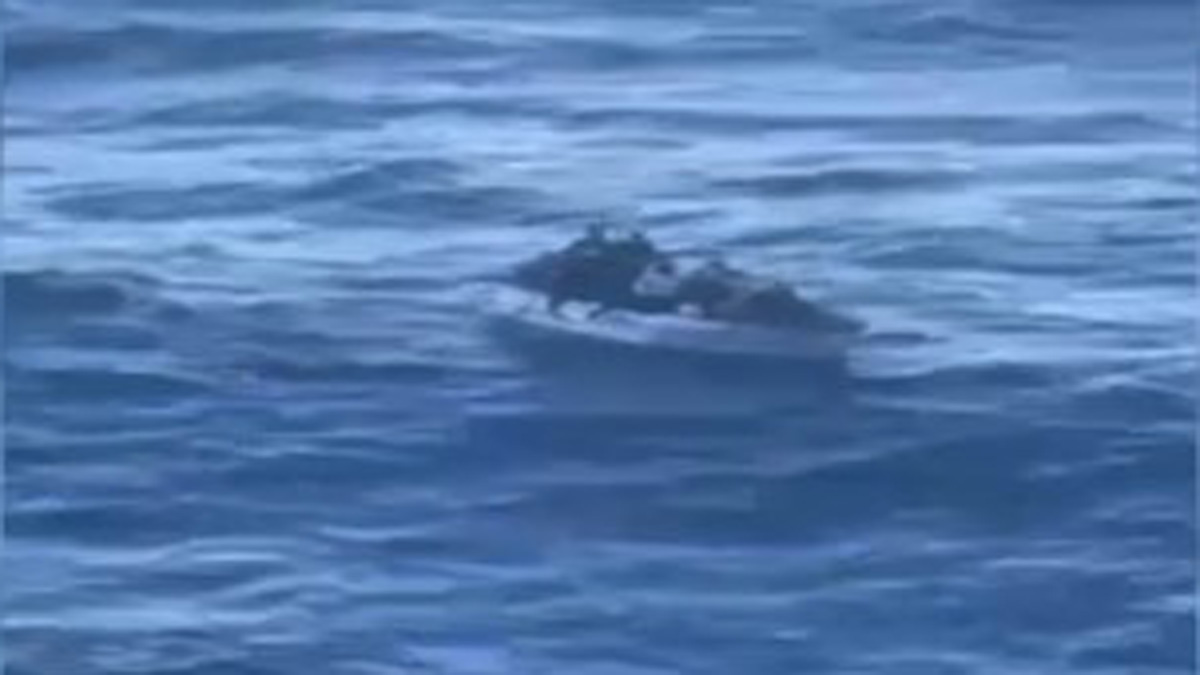The Biden administration signaled a tougher stance on migrants coming from Cuba, Haiti, Nicaragua and Venezuela Thursday, while offering a new path for migrants from those countries to enter legally, as officials worked to handle the massive influx of people arriving at the US-Mexico Border and in South Florida by boat.
The federal government said it would immediately start turning away Cubans, Haitians and Nicaraguans who cross the U.S.-Mexico border illegally, as it has done with Venezuelans. At the same time, it would accept 30,000 people per month from those four nations who arrive legally, have eligible sponsors and pass background checks.
It was not immediately clear what impact the new policy would have on the migrants who have been arriving in Florida in numbers not seen in nearly a decade.
Get South Florida local news, weather forecasts and entertainment stories to your inbox. Sign up for NBC South Florida newsletters.
On Thursday, Homeland Security officials said the Coast Guard took 337 migrants from Dry Tortugas National Park on a 70-mile trip to Key West, where they will be processed. They were among more than 700 migrants, mostly Cubans, who arrived in Florida by boat over the New Year's weekend.
Craig Cates, the mayor of Monroe County, said he was told another 300 or so migrants have been intercepted at sea, for a total of almost 1,000 people in just the first week of January.
MIGRANT CRISIS
"We totally understand why they're leaving, how bad it is over there, down in South America, the same thing. But we can only take so many and it’s making a huge impact," Cates told NBC 6 Thursday.
More than 4,400 Cubans and Haitians have arrived in Florida since August amid deepening and compounding political and economic crises in both countries. Almost 8,000 were stopped at sea and returned to their homelands — about 50 per day compared with 17 per day in the 2021-22 fiscal year and just two per day during the 2020-21 fiscal year.
Officials said at least 65 migrants have died since August trying to make the dangerous trek in often rickety boats.
Coast Guard Rear Adm. Brendan McPherson said in a statement late Wednesday that despite the increase, “the southeast maritime border is not open." He asked Cuban and Haitian Americans “to discourage family members in Cuba or Haiti from attempting the dangerous and very often deadly voyage."
While federal officials did not give a breakdown of the nationalities of migrants who have arrived in Florida since August, the vast majority who arrive in Florida come from Cuba, which is about 100 miles from the Keys. Haitians have a much longer journey — more than 700 miles. They usually hopscotch between Caribbean islands to reach the U.S.
Most Cubans will likely be released eventually because the U.S. and Cuba do not have diplomatic relations and the Havana government will not routinely take back migrants who reach U.S. soil, only those who are intercepted at sea.
While some likely will be able to claim they are victims of political persecution at home and be granted asylum, making them eligible for eventual U.S. citizenship, most will probably be designated as economic immigrants who entered the country illegally. They will be required to periodically check in with immigration officials. They will be able to obtain work permits, driver's licenses and Social Security numbers — but they won't be eligible for U.S. citizenship.
Because the U.S. and Haiti have diplomatic relations, most Haitians who arrive illegally and are caught are returned.
Even with the Florida influx, most Cubans attempting to enter the U.S. are doing so through Mexico by first flying to Nicaragua and then traveling north through Honduras and Guatemala. In the 2021-22 fiscal year, 220,000 Cubans were stopped at the U.S.-Mexican border, almost six times as many as the previous year.
Florida's Republican U.S. senators, Rick Scott and Marco Rubio, have placed the blame on the Biden administration.
"This situation is the predictable result of this administration’s open border policies, where as a result, migrants risk their lives on makeshift boats. That message has been complimented by lax border security measures and weak enforcement of our immigration laws," Rubio said in a statement Thursday.



